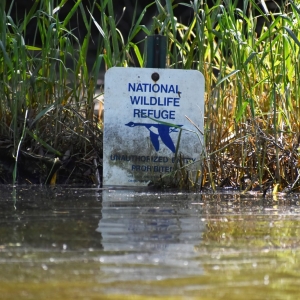The Stream, March 16, 2021: Australia Not Using Best Available Data to Regulate Murray-Darling Basin
YOUR GLOBAL RUNDOWN
- Murray-Darling Basin regulators are failing to use the best available climate information as conditions become drier.
- Lake Powell will reduce water flow this week in an attempt to understand the reservoir’s ecosystem more accurately.
- Nearly half a million people in Nicaragua still lack access to water and sanitation after dual hurricanes late last year.
- As threats to cybersecurity become more sophisticated, water infrastructure is increasingly at risk across the United States.
Maryland environmental regulators hope to grant one company millions of dollars to clean up pollution from a private chicken rendering plant.
“I appreciate that ultimately it will reduce pollution, but I’d like private industry to be paying their fair share.” – Maryland State Sen. Sarah Elfreth. Officials with the Maryland Department of the Environment want to grant nearly $13 million to a private company to help it clean up nutrient pollution from a chicken rendering plant, the Bay Journal reports. Local environmentalists and some Democratic lawmakers say the private firm shouldn’t receive public money to clean up its own pollution. State environmental officials say the grant could help improve the health of the Transquaking River, a 23-mile long Chesapeake Bay tributary that has been classified as impaired by nutrients since 1996.
IN RECENT WATER NEWS
Treaty Rights Acknowledged For First Time in Oil Pipeline’s Controversial History
Though the pipelines are hidden beneath 100 feet of water, Michigan has conducted encompassing state reviews, finding that the owner, the Canadian company Enbridge Energy, has a history of safety violations that put the Great Lakes at risk. Because of this, Line 5 is the source of the most significant legal and political confrontation over environmental safety and energy transport ever in Michigan.
Indigenous communities have long contested Line 5, but only recently has the state addressed this. Last November, Gov. Whitmer revoked the easement that allows the pipelines to operate, and ordered Enbridge to halt oil transport by May this year. Cited in the revocation, for the first time in the history of Line 5, Michigan’s administration officially acknowledged nearly 200-year-old Indigenous Chippewa and Ottawa treaty rights as one of the reasons to shut down the pipeline project and protect Great Lakes ecology and fisheries.
In Case You Missed It:
HotSpots H2O: With History of Pollution, British Water Utility Will Now Alert Residents to Sewage Spills – Thames Water Utilities, the United Kingdom’s largest water company, is creating a system to alert the public to sewage discharges into British rivers and streams.
What’s Up With Water – March 15, 2021 – This week’s episode covers dropping water levels in the Nelson Mandela Bay metro area’s largest reservoir, groundwater depletion in Louisiana and potential compensation for lawyers who negotiated hundreds of millions of dollars for victims of the Flint water crisis.
Australian River Authorities Fail To Use Best Available Climate Information For Murray Darling Basin Regulation
Experts say that Australian river authorities have failed to use the best available climate information to accurately regulate water use in the Murray Darling Basin, the Brisbane Times reports. Emma Carmody, a water law specialist with the Environmental Defenders Office, said that current extraction limits in the basin are based on data up to 2009, although the last two decades have been significantly drier.
TODAY’S TOP WATER STORIES, TOLD IN NUMBERS
4,000 CUBIC FEET OF WATER PER SECOND
Engineers at Glen Canyon Dam on Lake Powell prepared over the weekend to reduce water flows from one of the Colorado River’s largest reservoirs to just 4,000 cubic feet per second. The Arizona Daily Sun reports that data gathered from the disturbance flow could be used to make future recommendations on how to better support the Colorado River ecosystem.
500,000 PEOPLE
A new report from Unicef found that around 500,000 people in Nicaragua still have limited access to water, hygiene, and sanitation facilities after hurricanes Eta and Iota hit the country nearly four months ago. Overall, the report said, about 1.8 million Nicaraguans still need aid.
ON THE RADAR
A breach at a Florida water treatment facility last month has put tap water security in the spotlight, TechRepublic reports. Utility infrastructure is facing increasingly sophisticated threats as artificial intelligence provides round-the-clock monitoring for shorted handed IT teams with limited budgets. The pandemic has brought on an entirely new set of vulnerabilities for water systems and new entry points for hackers as employees log on from personal devices on their home networks.
In context: Water Sector Prepares for Cyberattacks
Jane is a Communications Associate for Circle of Blue. She writes The Stream and has covered domestic and international water issues for Circle of Blue. She is a recent graduate of Grand Valley State University, where she studied Multimedia Journalism and Women, Gender and Sexuality Studies. During her time at Grand Valley, she was the host of the Community Service Learning Center podcast Be the Change. Currently based in Grand Rapids, Michigan, Jane enjoys listening to music, reading and spending time outdoors.






Leave a Reply
Want to join the discussion?Feel free to contribute!